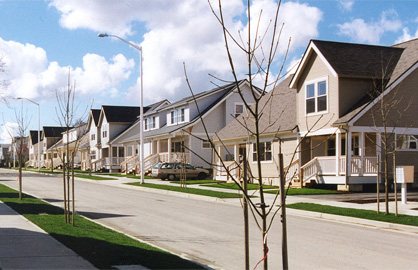Published on March 15, 2021

Arthur Acolin, an Urban@UW Affiliate sat down with CBE to talk about his work.
College is a time of exploration and discovery for all students. It is a time that often shapes how we view the world. Going through this transition during a moment of turbulence in the world can shape that experience significantly, which is exactly what happened for Assistant Professor of Real Estate, Arthur Acolin. As an undergraduate, international student in the US in 2008, the housing bubble and subsequent recession shaped Acolin’s future as a researcher and professor.
“The subprime crisis and the ensuing effect on millions of households who lost their homes, lost their life savings, was really a leading factor in my focus on the interaction between the financial sector, mortgages, household outcomes, and wealth.” – Arthur Acolin
The 2008 housing crisis, fueled by subprime loans, insufficient government oversight, and predatory lending, caused millions to lose their homes to foreclosure or short sales. First-time homebuyers that purchased towards the end of the expansion cycle, disproportionately minority borrowers, were more likely unable to remain homeowners and lose their homes.
Being in school during this time meant that faculty were doing research on subprime mortgages and credit availability. The mentoring from experts on these topics like Susan Wachter solidified Acolin’s interest in wanting to understand how “financial instruments such as mortgages are not just abstract concepts of how you allocate your money, or how you manage your wealth, but really have an impact on where you’re able to live, what kind of financial and mental health stress you take on and your overall well being as well.”
During this time, it wasn’t just people losing their homes that he saw, but everything else losing your house meant losing as well. It wasn’t just about the “physical structure putting a roof over your head”, but about a person’s overall and comprehensive quality of life. Acolin could see just how much impact housing had on a person’s daily life.
These realizations led Acolin to focus his own research on access to homeownership, and look at the homeownership gap1 and the structural inequities around becoming a homeowner. Acolin’s research looks at the structural and historical reasons these disparities exist and how access to mortgage credit can either exacerbate that gap or support closing it.
Continue reading at the CBE Research Portal.
Originally written as a Spotlight for the College of Built Environments Research Portal.